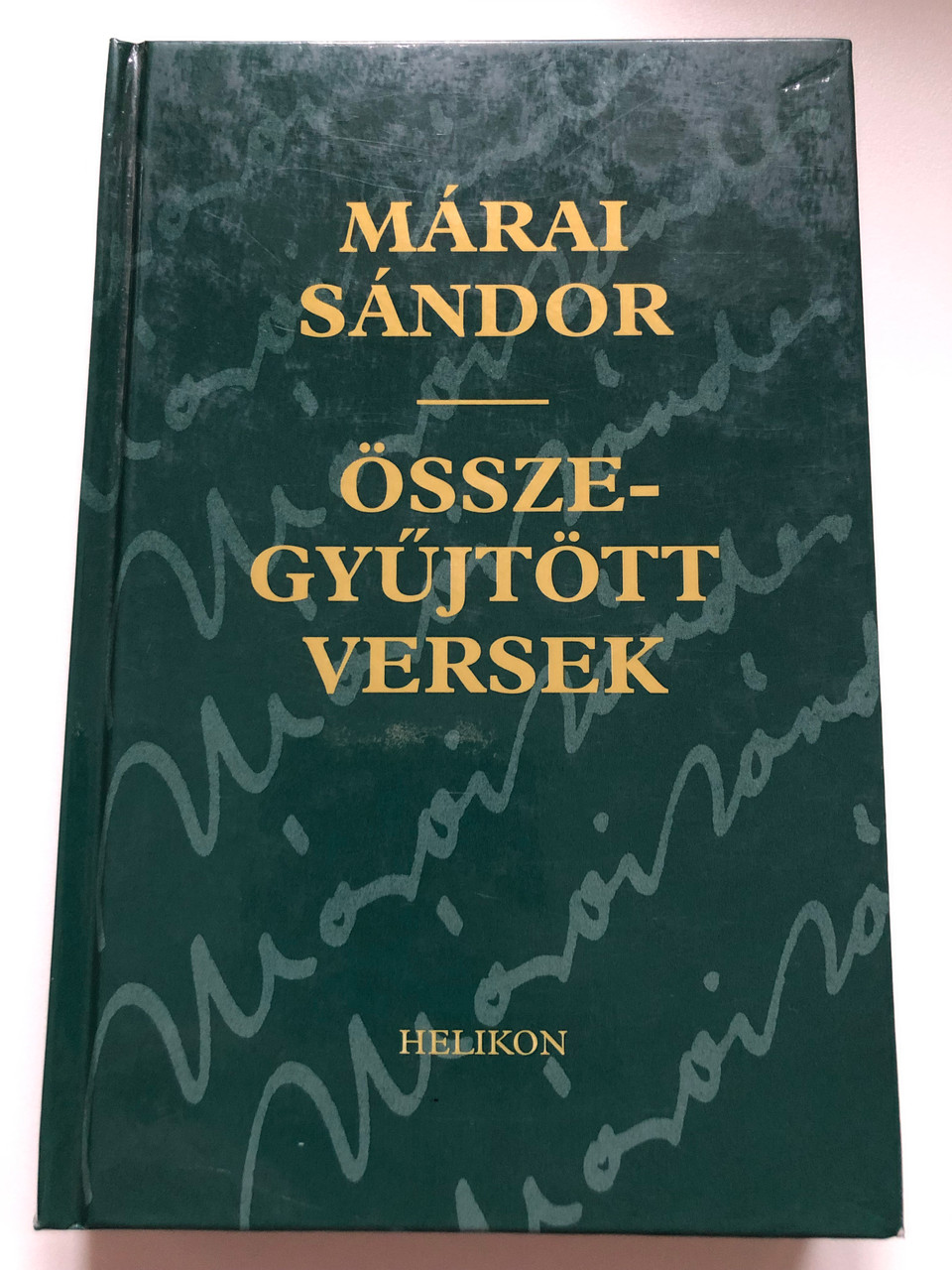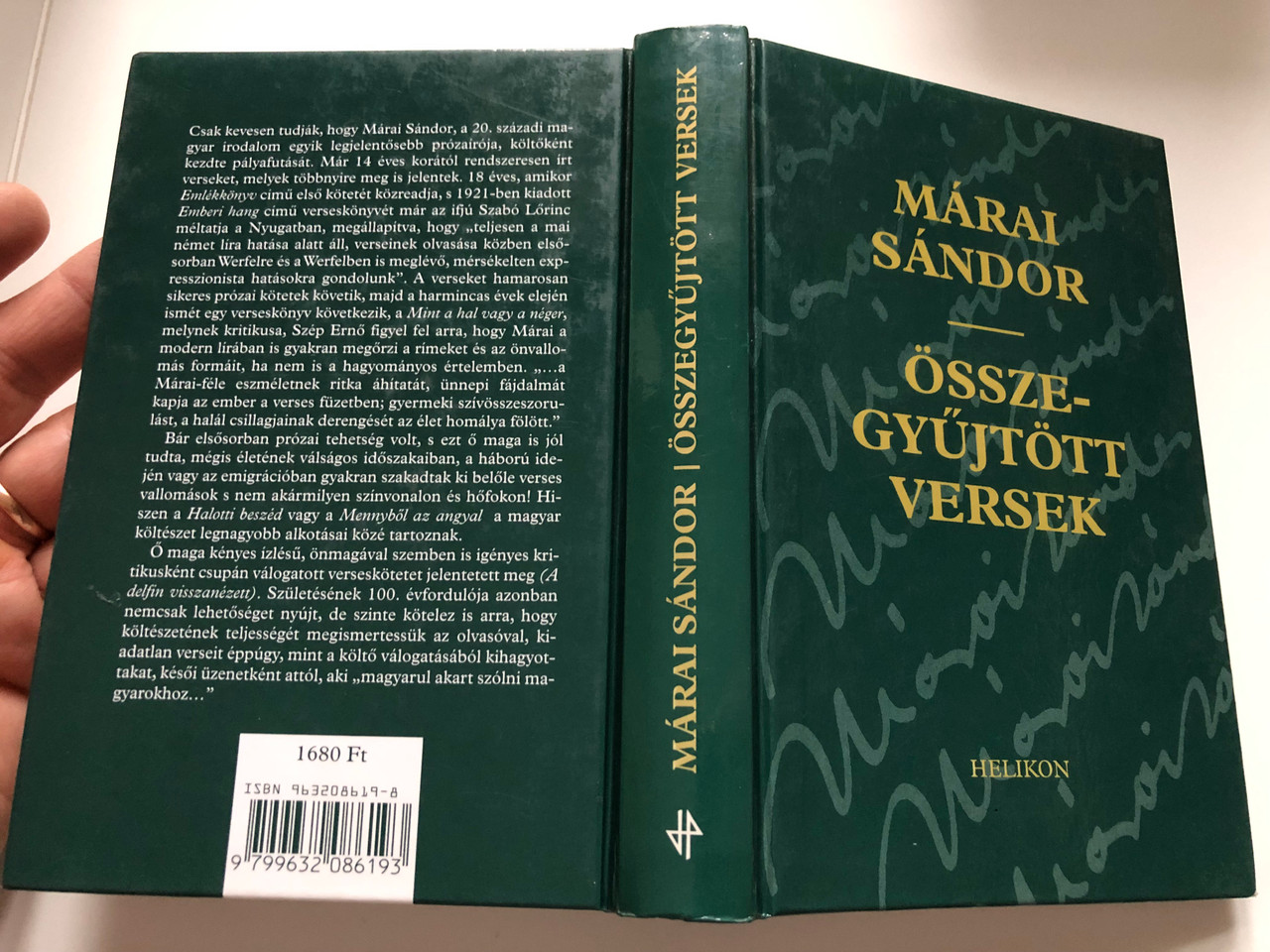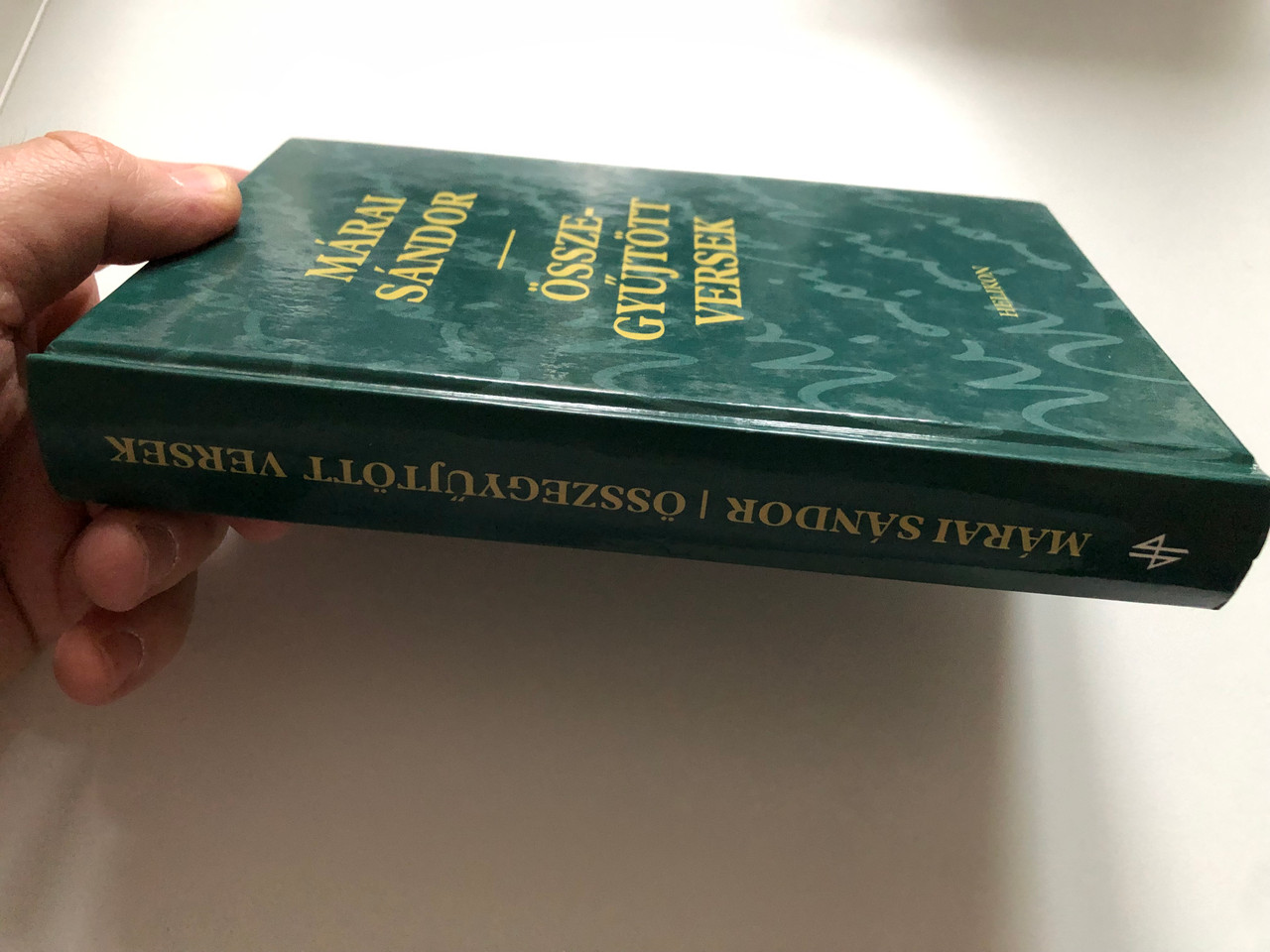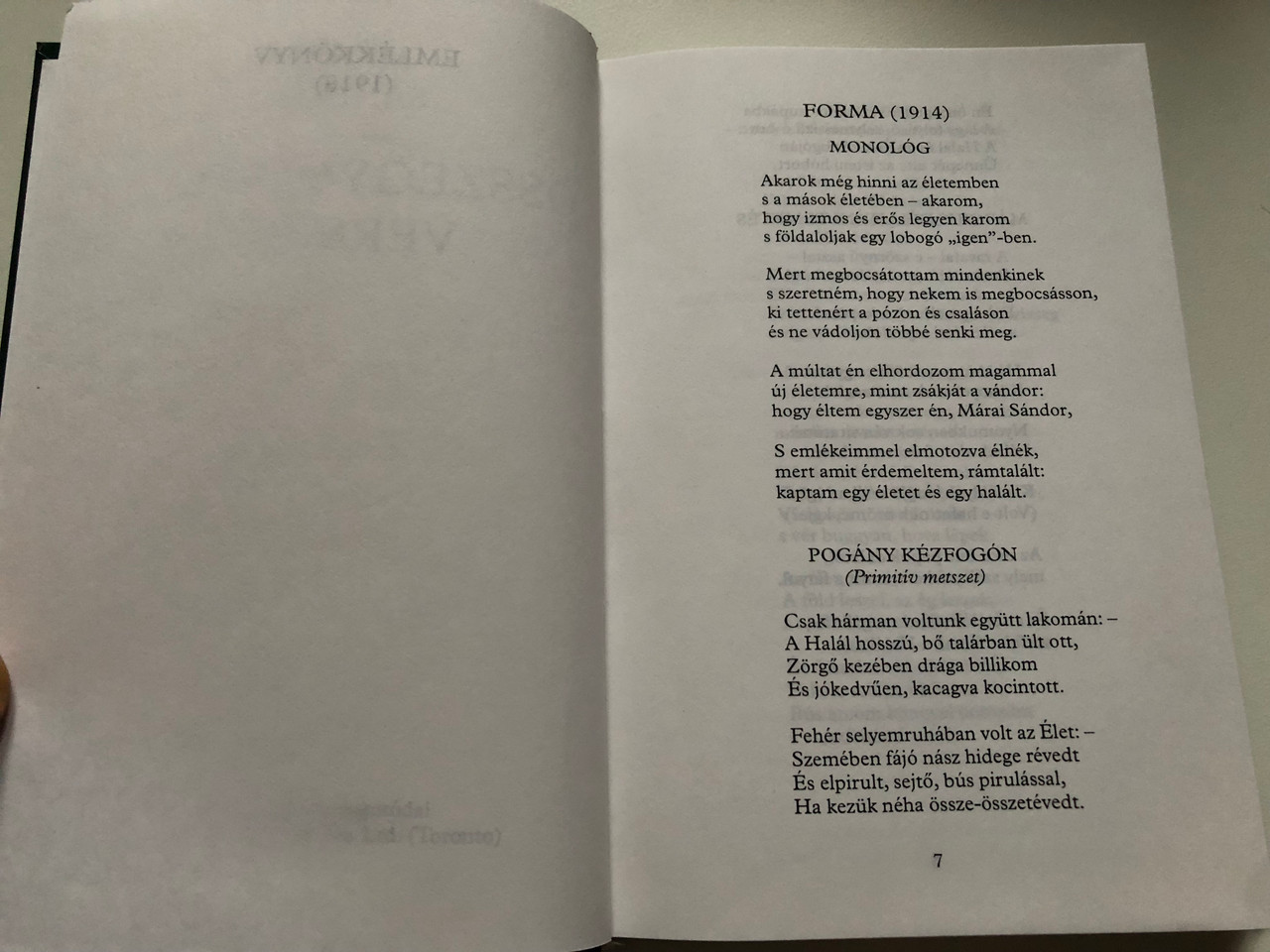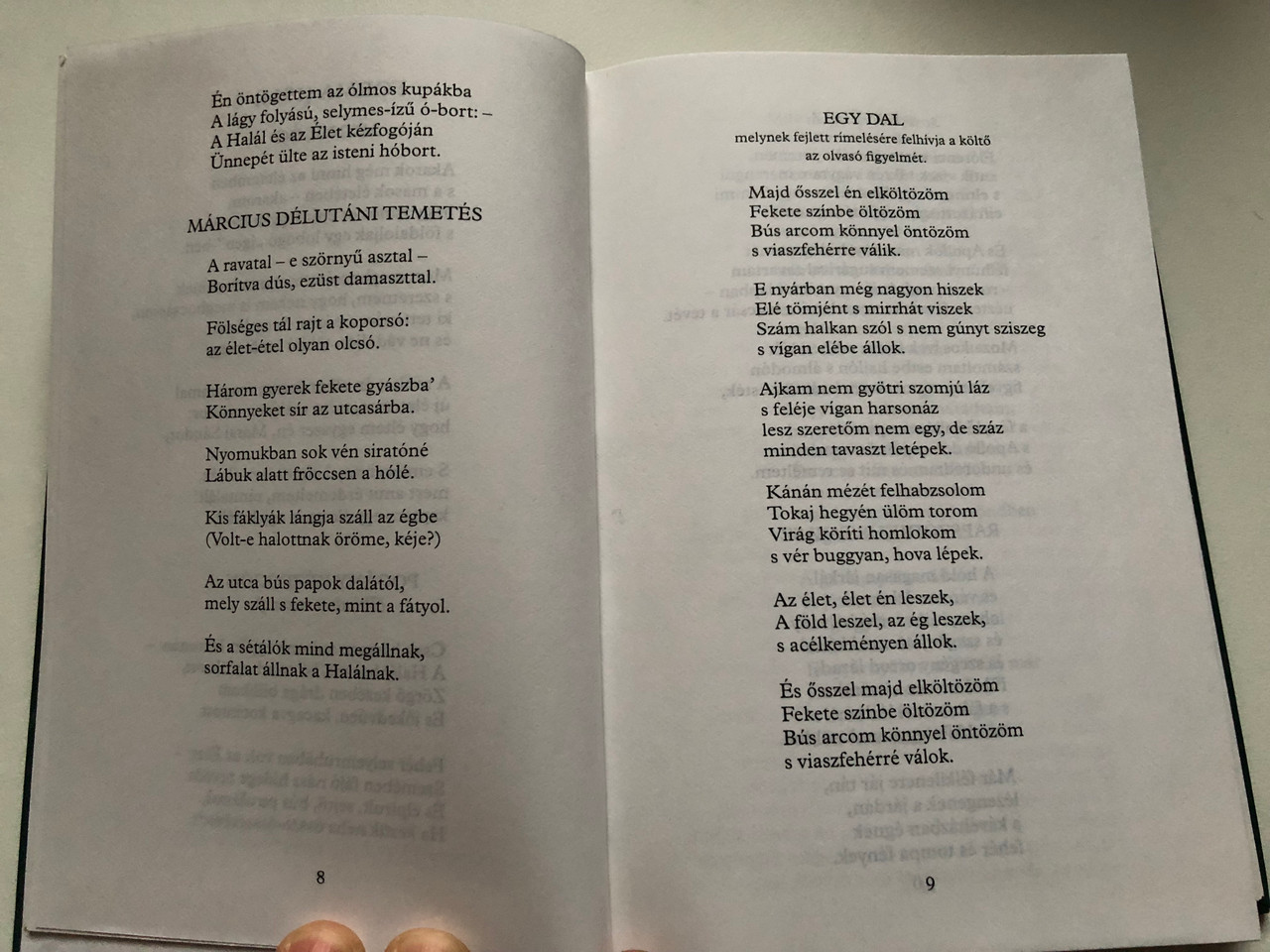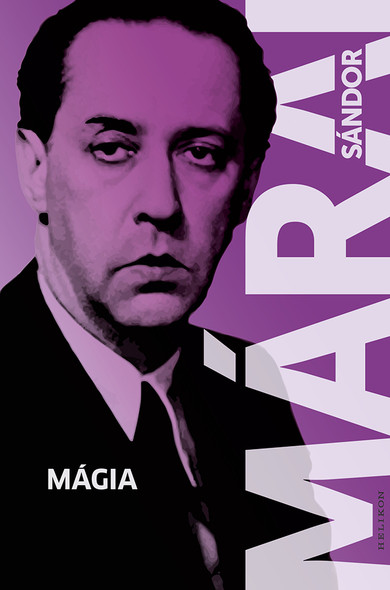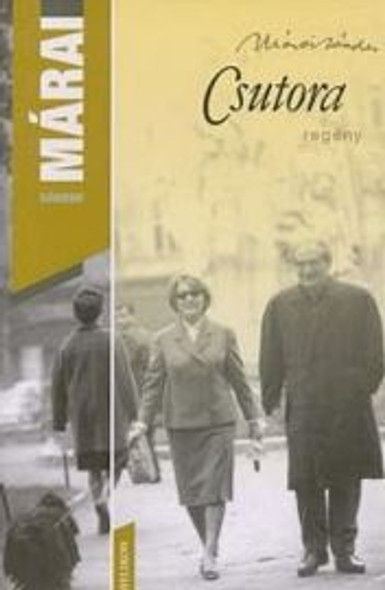Description
MÁRAI SÁNDOR: ÖSSZE-GYÜJTÖTT VERSEK (SÁNDOR MÁRAI: COLLECTED POEMS) / Egyéni megbeszélés alapján / Kiadta a Helikon Kiadó Kft / Felelős szerkesztő Steinert Ágota
ISBN: 9632086198 / 9799632086193 / 979-9632086193
- Publisher: Helikon Publishing
- Year of publication: 2000
- Place of issue: Budapest
- Printing house: Sylvester János Printing Kft
- Cover designers: Imre Kováts
- Binding type: hard paper
- Scope: 403
- Language Hungarian
- Size: Width: 12.50 cm, Height: 18.50 cm
- Category: Literature / Fiction / Poems, Verse antologies, Epics
- ISBN: 9632086198
English Description:
Few people know that Sándor Márai, one of the most important prose writers of 20th century Hungarian literature, began his career as a poet. From the age of 14, he regularly wrote poems, which were mostly published. He was 18 years old when he published his first volume, Emlékkönyv, and his book of poems, Human Voice, published in 1921, was already praised in the West by the young Lőrinc Szabó, stating that "He is completely under the influence of today's German lyric, while reading his poems primarily on Werfel and in Werfel we mean existing, moderately expressionistic influences". The poems were soon followed by successful volumes of prose, and then at the beginning of the thirties another book of poems followed, like the fish or the negr, whose critic, Ernő Szép, notes that Márai often preserves rhymes and forms of self-confession in his modern lyrics as well. if not in the traditional sense. "...one gets the rare reverence and festive pain of Márai's consciousness in the poetic booklet; a child's heartbreak, the glimmer of the stars of death above the gloom of life."
Although he was primarily a prose talent, and he himself knew this well, nevertheless, during periods of crisis in his life, during the war or during emigration, poetic confessions often broke out from him, and not at any level or temperature! After all, the Deathly Hallows or the Angel from Heaven are among the greatest works of Hungarian poetry.
As a critic with delicate taste and demanding of himself, he only published a selected book of poems (The dolphin looked back). However, the 100th anniversary of his birth not only provides an opportunity, but almost obliges us to introduce the reader to the entirety of his poetry, his unpublished poems as well as those left out of the poet's selection, as a late message from someone who "wanted to speak to Hungarians in Hungarian..."
Hungarian Description:
Csak kevesen tudják, hogy Márai Sándor, a 20. századi magyar irodalom egyik legjelentősebb prózaírója, költőként kezdte pályafutását. Már 14 éves korától rendszeresen írt verseket, melyek többnyire meg is jelentek. 18 éves, amikor Emlékkönyv című első kötetét közreadja, s 1921-ben kiadott Emberi hang című verseskönyvét már az ifjú Szabó Lőrinc méltatja a nyugatban, megállapítva, hogy "Teljesen a mai német líra hatása alatt áll, verseinek olvasása közben elsősorban Werfelre és a Werfelben is meglévő, mérsékelten expresszionista hatásokra gondolunk". A verseket hamarosan sikeres prózai kötetek követik, majd a harmincas évek elején ismét egy verseskönyv következik, a mint a hal vagy a néger, melynek kritikusa, Szép Ernő figyel fel arra, hogy Márai a modern lírában is gyakran megőrzi a rímeket és az önvallomás formáit, ha nem is a hagyományos értelemben. "...a Márai-féle eszméletnek ritka áhítatát, ünnepi fájdalmát kapja az ember a verses füzetben; gyermeki szívösszeszorulást, a halál csillagjainak derengését az élet homálya fölött."
Bár elsősorban prózai tehetség volt, s ezt ő maga is jól tudta, mégis életének válságos időszakaiban, a háború idején vagy az emigrációban gyakran szakadtak ki belőle verses vallomások s nem akármilyen színvonalon és hőfokon! Hiszen a Halotti beszéd vagy a Mennyből az angyal a magyar költészet legnagyobb alkotásai közé tartoznak.
Ő maga kényes ízlésű, önmagával szemben is igényes kritikusként csupán válogatott verseskötetet jelentetett meg (A delfin visszanézett). Születésének 100. évfordulója azonban nemcsak lehetőséget nyújt, de szinte kötelez is arra, hogy költészetének teljességét megismertessük az olvasóval, kiadatlan verseit éppúgy, mint a költő válogatásából kihagyottakat, késői üzenetként attól, aki "magyarul akart szólni magyarokhoz..."






























